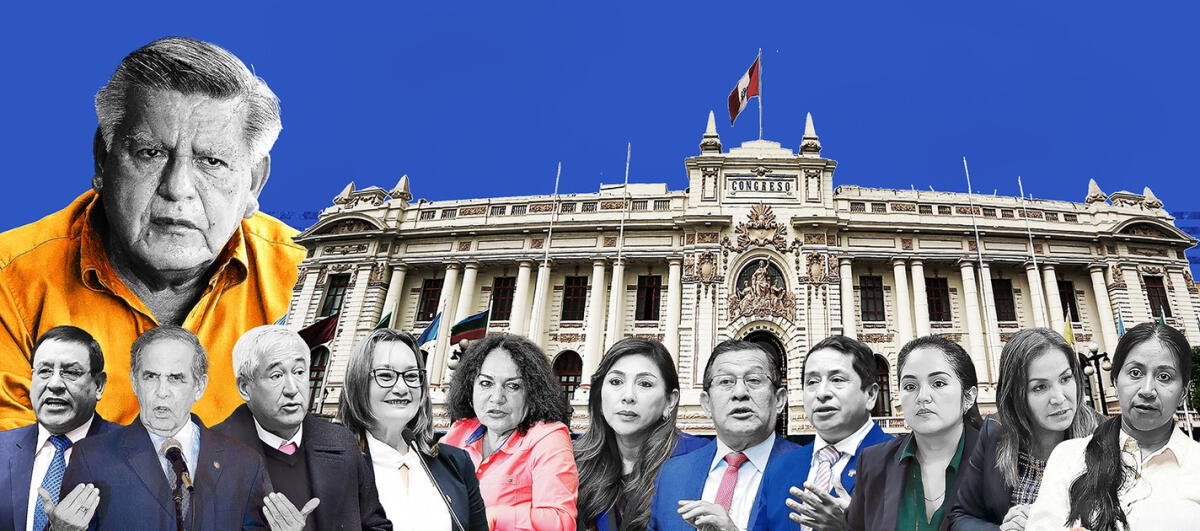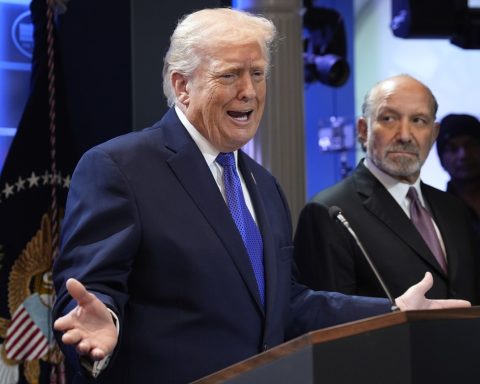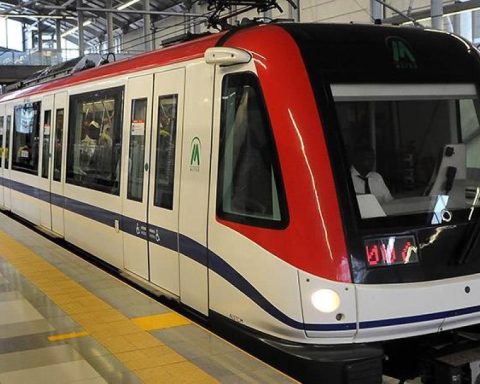Alliance for Progress (APP) is like one of the legs that support the platform on which the Dina Boluarte’s government and a key piece in the Congressdespite the great rejection from citizens to both powers. Their leader, Cesar Acunarubs shoulders with the Executive and its parliamentarians align themselves with the decisions of the lobbying bloc that dominates the Legislature.
With Boluarte in the presidency of the Republic, Acuña has made a leap. In 2022, when Pedro Castillo governed, he was perceived in the 11th place among the most powerful in Peru by influential citizens, according to the Ipsos Power Survey of that year, with 17% of mentions. In 2023, With Boluarte, he moved to 5th placewith 40% giving the same rating, according to the respective survey.
The president has an apepista loyal to Acuña, Cesar Vasquezformer congressman, as Health Minister for more than a year and other members of the party also achieved positions in the Government. A striking appointment was that of Luis Ibericoadvisor in Congress, collaborator of Acuña and former president of Parliament, as Peruvian ambassador to Spain.
Last May, Boluarte recommended the judge to the legislature Pedro Cartolin for the position of comptroller. He is the husband of a former APP candidate for Congress and supported Acuña in a lawsuit for child support. APEP legislator María Acuña, sister of the leader, voted for him to be comptroller, but the Permanent Commission withdrew him.
In Congress, APP has the presidency, with Alejandro Sotoand aims to keep it. He himself plans a re-election, despite the questions. One option is the legislator Jose Elias Avaloswho resigned from Podemos Peru and joined APP. Others who have been mentioned are Eduardo Salhuana and Lady Camones.
In September 2002, Camones lost the presidency of Congress because she was censured after audios were broadcast on the digital channel Epicentro TV, in which He follows Acuña’s orders to accelerate an initiative that would benefit his candidacy for the Regional Government of La Libertad.
The recording shows the Acuña’s handling of the bench and gives instructions to the head of Congress: that within a week they should decide on a project to create a district in that region. Then, they would present it there and, due to the APEP presence, it would gain votes for the upcoming election. The scandal stopped them, but Acuña won the position and the initiative was later seen.
The Parliament’s Board of Directors displays the APP’s alliance with Fujimorism: Fuerza Popular holds the first vice presidency. Peru Libre also has another seat. This makes the Acuñista group a partner of Fujicerronism.
This gravitation of Fujimorism strengthens the option of Elías Ávalos for the presidency of Congress. He is a former Fujimorist, since the nineties. In 2000, he was one of the defectors who left their parties to join Alberto Fujimori’s party.
APP has supported laws and serious attacks by Congress. Some show support for the Government, such as allowing Boluarte dispatches remotely when he leaves Peru. Others, his alliance with the dominant bloc.
Earlier this month, he supported the law of impunityd, which seeks to stipulate the statute of limitations for crimes against humanity prior to 2002. The two APEP members present in the Permanent Commission voted in favour. Another vote is pending.
In May, eight APEP members en bloc supported the proposal in the Plenary Session eliminate regional movementsIn a project for the re-election of mayors and governor, Salhuana argued that these regional organizations needed to be eliminated.
In March, APP supported Disqualify Inés Tello and Aldo Vásquezmembers of the National Justice Board (JNJ). They were later reinstated by a court ruling.
Last December, 10 APEP members en bloc supported the rule against primary, open, simultaneous and mandatory elections (PASO)key to electoral reform to improve political representation. They also supported the law that weakens effective collaboration.
Days before, they approved the election of Pedro Hernandezz as a magistrate of the constitutional Courtwithout debate, despite having questions. Just an example of the role that the apepistas have in current politics in a country in crisis.
Functional to the project of their leader
By Jorge Aragón, political scientist (PUCP and IEP)
Since the end of Pedro Castillo’s government until today, APP and César Acuña have chosen to be part of the group of parties and politicians who enthusiastically gambled on the political survival of the current government. It is interesting to note that, although the influence that Acuña and APP have come to have on the decisions of the current Executive Branch has to do simply with their status as an ally, this is not the only reason. Although it is true that the APP bench was never the largest in the current Congress; the fact that it has not fractured over time, the number of congressmen they have managed to keep within the bench, the disciplined way in which its members tend to vote and the undisputed and effective leadership of Acuña have made APP one of the strategic allies of this Government and of the governing coalition. Nothing seems to indicate that this will change and, therefore, APP should be one of the parties that access one of the vice-presidencies of the next Board of Directors of Congress. Furthermore, if the Fujimorists prefer not to expose themselves too much by taking charge of the presidency of Parliament, it is not unlikely that someone from APP will repeat that position. On the APP side, this would not be a bad outcome because its closeness to the current Government has allowed it to access resources and opportunities that are highly functional to César Acuña’s style and political project.

















